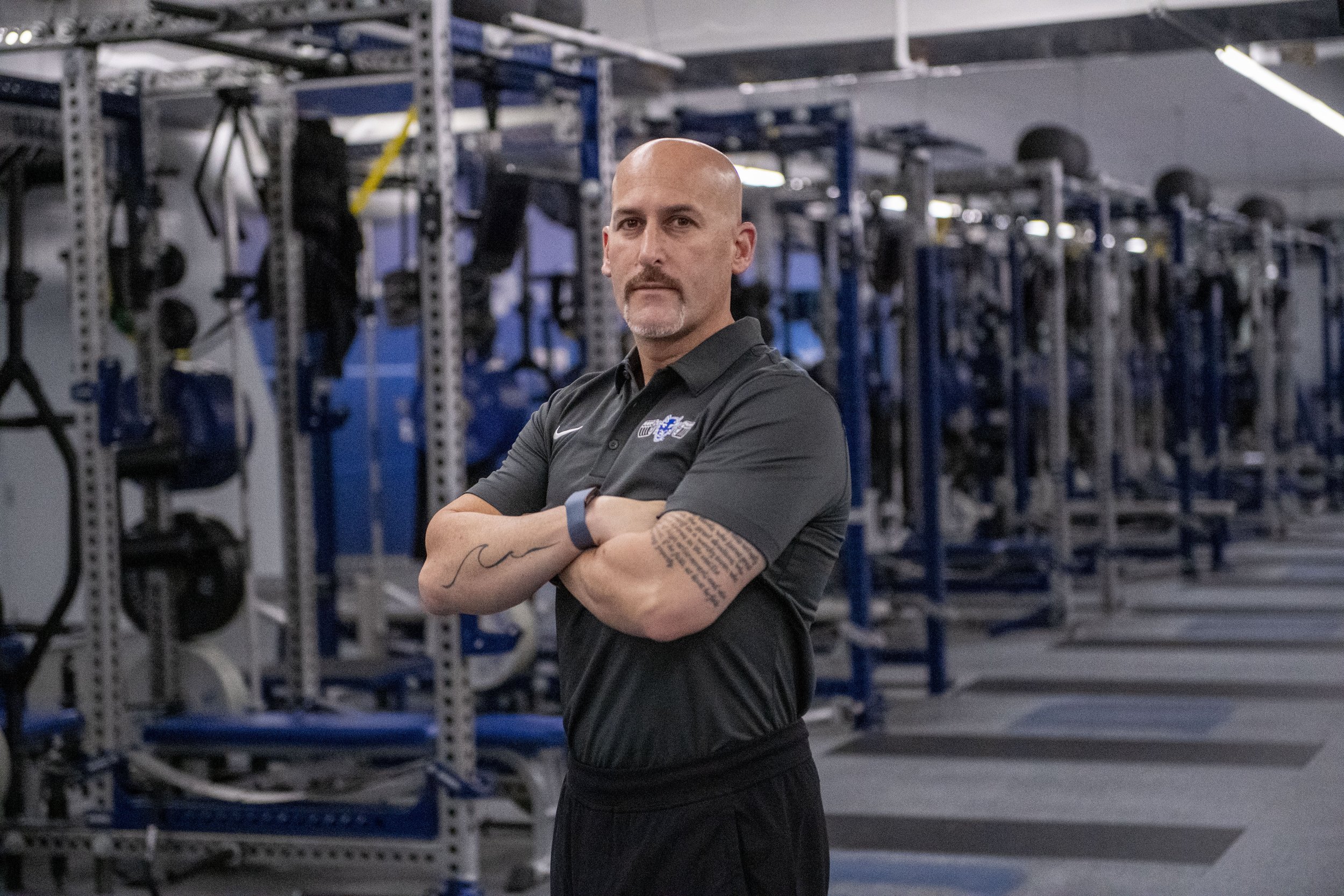Durham, N.C. — While all eyes are on Duke Basketball’s elite talent and jaw-dropping recruiting class, something even more powerful is happening behind the scenes — something that may end up being the true difference-maker in March.
In what’s quietly shaping up to be one of the boldest off-season moves in college basketball, the Blue Devils have added a new strength and conditioning coach who is already revolutionizing the way Duke trains, recovers, and performs. The move didn’t make headlines. There was no massive press conference. But make no mistake — this could be the secret weapon that elevates Duke from contenders to champions.
Not Just Lifting — It’s a New Philosophy
Gone are the days when college programs treated strength training as just “weights and running.” This new era of Duke training is driven by data, science, and precision.

“Where banners are built — not on the court, but in the shadows.”
The new strength coach — whose identity Duke is deliberately keeping out of the spotlight for now — comes from a pro-style performance background, bringing years of experience working with elite-level athletes. His mission? Transform raw talent into durable, high-performing machines built for the demands of a deep NCAA Tournament run.
Players are already talking about the changes. Training sessions have shifted from generic lifts to position-specific programming, focused on explosive movement, core balance, and sustained athletic performance.
“This isn’t just about getting stronger,” one player said. “It’s about unlocking a different level of our game — staying fresh, fast, and fearless all season long.”
Inside the New Duke Blueprint
What does this new system look like?
Advanced Recovery Tech: From cryotherapy chambers to personalized rehab regimens, recovery has become just as important as training.
Biomechanics & Movement Efficiency: Players are now studied for how they move — every jump, sprint, and cut is evaluated to reduce injury risk and improve burst.
Mental Performance Coaching: Focus, breathing, and game-time composure are part of the daily grind now. The mental side is no longer a bonus — it’s a must.
Nutrition & Fueling: Each athlete is given tailored nutritional plans to match their role, size, and performance goals.
It’s a complete reimagining of what it means to “train like a Blue Devil.” And the timing couldn’t be better.
Built for the Spotlight
With sky-high expectations placed on players like Cooper Flagg, Caleb Foster, Khaman Maluach, and others, Duke isn’t just building a highlight-reel team — it’s building a resilient one.

“The Architect of March: Duke’s Secret Weapon”
Too often in college basketball, high-talent teams fall short in March because their bodies and minds simply run out of steam. But Duke’s new performance model aims to flip that script. Everything — from the timing of peak workouts to injury-prevention strategy — is designed to ensure the squad plays its best basketball in March, not just in November.
And that’s the goal: sustain greatness, survive March, and surge toward April.
A Hidden Key to Banner No. 6?
Fans will talk about Flagg’s dunks, Foster’s leadership, or Scheyer’s evolving coaching style. But if Duke cuts down the nets in 2025, don’t be surprised if the players — in quiet moments behind the scenes — credit the man who trained them for war.
It may not be flashy. It may not be viral.




















